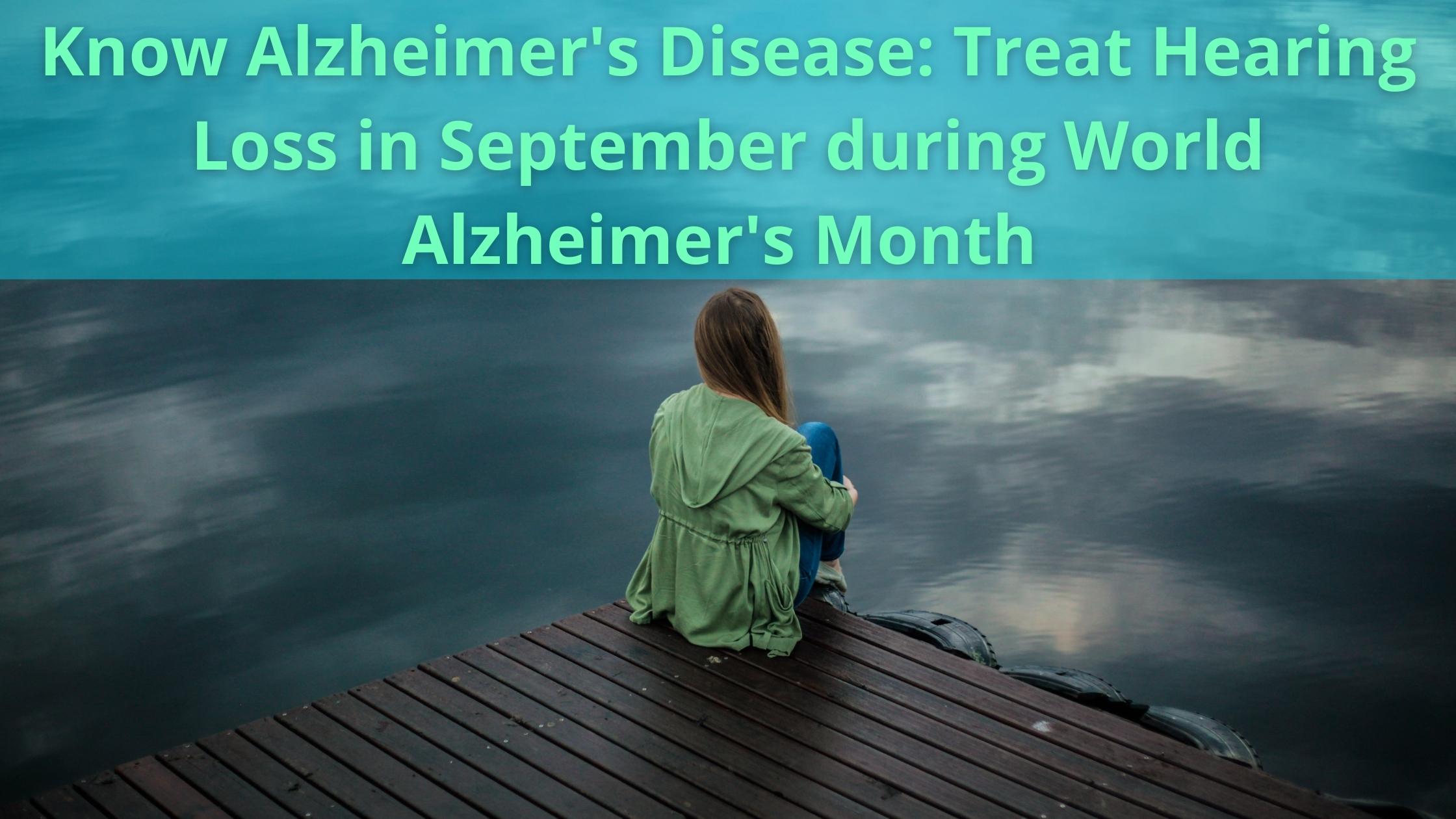September is World Alzheimer’s Month! This year is the 10th year that people from around the globe have come together to raise awareness about Alzheimer’s Disease and dementia. Hearing loss is one of the risk factors of dementia and Alzheimer’s Disease, so every year we join the global conversation about dementia.
What is World Alzheimer’s Month?
September is a time to raise awareness about the most common form of dementia: Alzheimer’s Disease. The campaign brings together those living with dementia, as well as caregivers, family members, healthcare providers, researchers, innovators, the media, and more.
The theme for 2021 is Know Dementia, Know Alzheimer’s, and the campaign focuses on early diagnosis, as well as identifying the warning signs of dementia. It’s estimated that around 50 million people worldwide have dementia, and this figure is expected to grow to approximately 152 million by 2050. However, up to three-quarters of those with dementia have yet to receive a diagnosis.
So What is Alzheimer’s Disease?
Alzheimer’s Disease is the most common kind of dementia. In fact, about 50-60% of those with dementia have Alzheimer’s Disease. Dementia is a degenerative disease that slowly damages the nerve cells in the brain so they can’t communicate with other cells in the brain or the body. This starts to impact cognitive function and later can affect physical function as well.
The most common symptoms of Alzheimer’s Disease and dementia include changes in memory, thinking, emotions and behaviors. Other symptoms can include:
- Memory loss
- Difficulty finding the word you want to say
- Having a hard time understanding people or following conversations
- Struggling to perform routine or everyday tasks
- Experiencing changes in mood or personality.
As the disease progresses, it becomes more difficult for someone with dementia to care for themselves, and eventually, they will need help with all aspects of their daily routines.
What Are the Early Warning Signs of Dementia?
Identifying and diagnosing dementia early will help you and your loved ones make sense of your recent experiences, help you make changes to your lifestyle as needed, and help you prepare for your future needs.
These are some of the first early warning signs of dementia:
- Memory loss
- Feeling disoriented to time and place
- Having a hard time keeping track of things
- Experiencing changes in mood
- Misplacing things
- Withdrawing from social activities
- Having difficulty performing very familiar activities
While dementia can affect older adults, it is not a part of normal aging! If you recognize any of these symptoms in yourself or a loved one, talk to your doctor as soon as possible.
Hearing Loss and Alzheimer’s Disease
One of the risk factors that can increase your risk of developing dementia is hearing loss. Hearing loss also affects your brain. Hearing loss makes it extremely difficult to follow conversations or enjoy social events. You spend a lot of energy straining to hear, and this doesn’t leave a lot of energy for other cognitive tasks. And as you withdraw from social events, your brain isn’t getting enough of the right activity to improve brain health.
That’s why treating hearing loss is an important preventative measure. When you wear hearing aids, you can get back to hearing clearly. You’ll enjoy spending time with loved ones, even if there’s background noise. You’ll keep your brain active and healthy, and even have energy to take up a new hobby, challenge your mind, and build new connections in your brain.
Treating Hearing Loss
Treating hearing loss can also give you clarity on your symptoms. Review the list of early warning signs of dementia? Do any of these signs sound familiar? You may recognize many of them as early warning signs of hearing loss as well. That’s because hearing loss can also lead to social withdrawal, loneliness, or even memory loss. After all, if you couldn’t properly hear what was being said, you can’t hope to remember it.
Treating hearing loss can eliminate many of the symptoms of hearing loss and make it easy for you to connect with loved ones. You will notice improvements in mood and energy, and enjoy spending time with family and friends. Treating hearing loss is good for your brain, and will lower your risk of Alzheimer’s Disease.
This fall, join us in celebrating world Alzheimer’s month, and visit a hearing health professional today!

